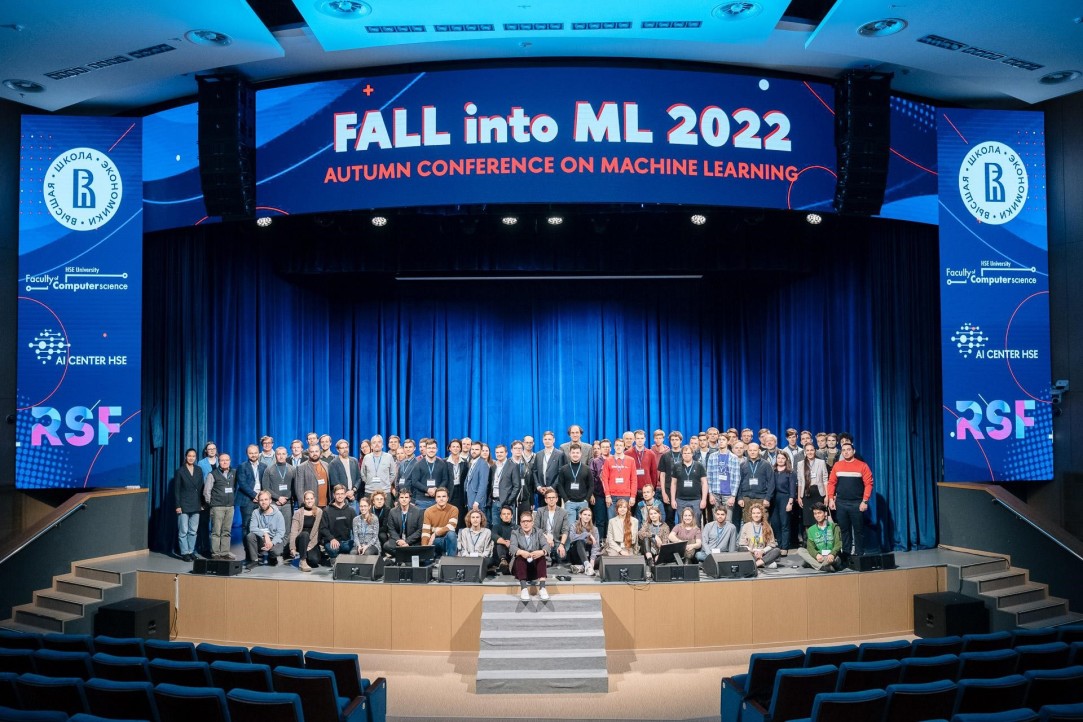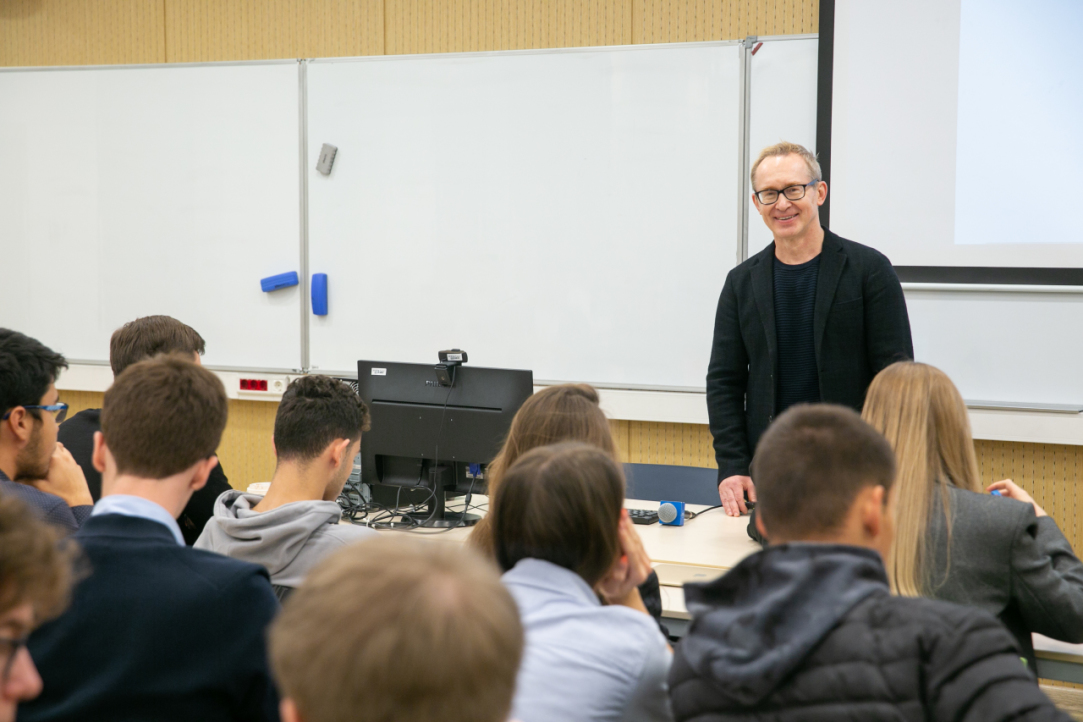
‘An STI-Accelerated and Informed Future is Possible’
The Twelfth International Academic Conference ‘Foresight and Science, Technology and Innovation Policy’ is kicking off at HSE University on November 22. Alexander Sokolov, chair of the organising committee, talked to the HSE News Service about the evolution of the foresight agenda. Two of the conference speakers, Ibon Zugasti from Spain and Mlungisi Cele from South Africa, shared some highlights of their research.

Three HSE Researchers Receive Ilya Segalovich Award
Three researchers of the HSE Faculty of Computer Science are among the winners of the 2022 Ilya Segalovich Award: Research Professor Dmitry Vetrov, Associate Professor Alexey Naumov and doctoral student Sergey Samsonov. The award, established by Yandex in 2019, is aimed at supporting young researchers and the scientific community in the field of IT in Russia, Belarus and Kazakhstan.

Fall into ML: Autumn School and Conference on Machine Learning Held at HSE University
On November 1st-3rd, 2022 the International Laboratory of Stochastic Algorithms and High-Dimensional Inference of the HSE Faculty of Computer Science and the Laboratory of Methods for Big Data Analysis with the support of HSE AI Centre and the Russian Science Foundation organized the first autumn school and conference on artificial intelligence ‘Fall into ML’. The new format of the event included a school for students and young researchers.

Machine Learning Predicts Epileptogenic Activity from High-Frequency Oscillation Rates
In an innovative study, researchers from HSE University, RAN Institute of Linguistics, and the National Medical and Surgical Centre named after N.I. Pirogov measured and analysed high-frequency oscillations (HFO) in different regions of the brain. An automated detector predicted seizure outcomes based on HFO rates with an accuracy rate of 85%, and by applying machine learning, made it possible to distinguish between epileptogenic and non-epileptogenic HFO. The study’s findings are published in Frontiers in Human Neurosciences.

Optimism Makes Algorithm for Reinforcement Learning More Effective
An international team of scientists from Russia, France and Germany (including researchers of the HSE Faculty of Computer Science, the HSE Artificial Intelligence Centre and the Artificial Intelligence Research Institute) have developed a new reinforcement learning algorithm (Bayes-UCBVI). This is the first Bayesian algorithm that has a mathematical proof of effectiveness and has been successfully tested in Atari games. The result was presented at the ICML-2022 conference.

Research Finds Genes Associated with Most Aggressive Kidney Cancer
HSE researchers have found genes characteristic of the most aggressive subtype of clear cell renal carcinoma. Having studied data on tumour samples from 456 patients, Grigory Puzanov, research fellow at the HSE Faculty of Computer Science International Laboratory of Bioinformatics, identified cancer subtypes associated with either a favourable or unfavourable course of the disease. The paper is published in Scientific Reports.

17 Articles by Researchers of HSE Faculty of Computer Science Accepted at NeurIPS
In 2022, 17 articles by the researchers of HSE Faculty of Computer Science were accepted at the NeurIPS (Conference and Workshop on Neural Information Processing Systems), one of the world’s most prestigious events in the field of machine learning and artificial intelligence. The 36th conference will be held in a hybrid format from November 28th to December 9th in New Orleans (USA).

Study Explains Blood Donation Motivations
An international team of researchers from the HSE International Laboratory of Positive Psychology of Personality and Motivation, the Russian National Research Centre for Hematology, and a number of American universities examined the motivations of regular blood donors.

'Conferences Publicly Push Important Research to New Levels'
During his visit to ICEF, Sergey Tsyplakov, a professor in finance at Moore School of Business of the University of South Carolina, delivered a lecture to students and contributed to ICEF-CInSt 11th International Moscow Finance Conference as a keynote speaker. In this interview, Sergey shares what surprised him about ICEF students, why scientific paper reviewing may not always be objective, and why people on Wall Street read academic research.

Microfluidic Chip Used to Test Drug Toxicity
A team including HSE researchers has developed a way to use microfluidic chips to assess the toxic effects of drugs on humans. This device will help identify and minimise the side effects of drugs during the preclinical trial stage and reduce the need for animal experiments. The study is published in Bulletin of Experimental Biology and Medicine.


Application deadline: June 23, 2025